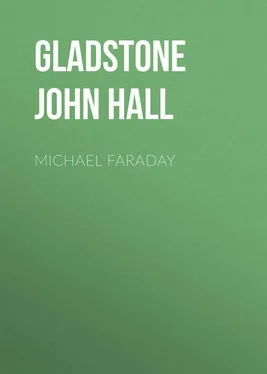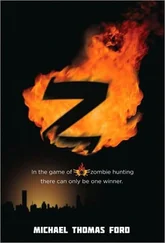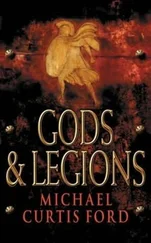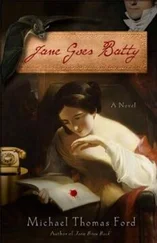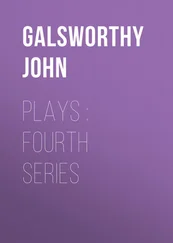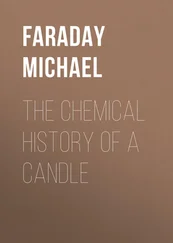John Gladstone - Michael Faraday
Здесь есть возможность читать онлайн «John Gladstone - Michael Faraday» — ознакомительный отрывок электронной книги совершенно бесплатно, а после прочтения отрывка купить полную версию. В некоторых случаях можно слушать аудио, скачать через торрент в формате fb2 и присутствует краткое содержание. Жанр: foreign_antique, foreign_prose, на английском языке. Описание произведения, (предисловие) а так же отзывы посетителей доступны на портале библиотеки ЛибКат.
- Название:Michael Faraday
- Автор:
- Жанр:
- Год:неизвестен
- ISBN:нет данных
- Рейтинг книги:5 / 5. Голосов: 1
-
Избранное:Добавить в избранное
- Отзывы:
-
Ваша оценка:
- 100
- 1
- 2
- 3
- 4
- 5
Michael Faraday: краткое содержание, описание и аннотация
Предлагаем к чтению аннотацию, описание, краткое содержание или предисловие (зависит от того, что написал сам автор книги «Michael Faraday»). Если вы не нашли необходимую информацию о книге — напишите в комментариях, мы постараемся отыскать её.
Michael Faraday — читать онлайн ознакомительный отрывок
Ниже представлен текст книги, разбитый по страницам. Система сохранения места последней прочитанной страницы, позволяет с удобством читать онлайн бесплатно книгу «Michael Faraday», без необходимости каждый раз заново искать на чём Вы остановились. Поставьте закладку, и сможете в любой момент перейти на страницу, на которой закончили чтение.
Интервал:
Закладка:
But he kept a lengthy journal, and as we turn over the pages – for the best part of it is printed by Bence Jones – we meet vivid sketches of the provokingly slow custom-house officers, the postilion in jack-boots, and the thin pigs of Morlaix – pictures of Paris, too, when every Frenchman was to him an unintelligible enemy; when the Apollo Belvidere, the Venus de Medici, and the Dying Gladiator were at the Louvre, and when the First Napoleon visited the Senate in full state. "He was sitting in one corner of his carriage, covered and almost hidden from sight by an enormous robe of ermine, and his face overshadowed by a tremendous plume of feathers that descended from a velvet hat." We watch Sir Humphry as Ampère and others bring to him the first specimens of iodine, and he makes experiments with his travelling apparatus on the dark lustrous crystals and their violet vapour; we seem, too, to be present with the great English chemist and his scholar as they burn diamonds at Florence by means of the Grand Duke's gigantic lens, and prove that the invisible result is carbonic acid; or as they study the springs of inflammable gas at Pietra Mala, and the molten minerals of Vesuvius. The whole, too, is interspersed with bits of fun, and this culminates at the Roman Carnival, where he evidently thoroughly enjoyed the follies of the Corso, the pelting with sugar-plums, and the masked balls, to the last of which he went in a nightgown and nightcap, with a lady who knew all his acquaintances; and between the two they puzzled their friends mightily.
This year and a half may be considered as the time of Faraday's education; it was the period of his life that best corresponds with the collegiate course of other men who have attained high distinction in the world of thought. But his University was Europe; his professors the master whom he served, and those illustrious men to whom the renown of Davy introduced the travellers. It made him personally known, also, to foreign savants , at a time when there was little intercourse between Great Britain and the Continent; and thus he was associated with the French Academy of Sciences while still young, his works found a welcome all over Europe, and some of the best representatives of foreign science became his most intimate friends.
In May 1815, his engagement at the Royal Institution was renewed, with a somewhat higher position and increased salary, which was again raised in the following year to 100 l. per annum. The handwriting in the Laboratory Note-book changes in September 1815, from the large running letters of Brande to the small neat characters of Faraday, his first entry having reference to an analysis of "Dutch turf ash," and then soon occur investigations into the nature of substances bearing what must have been to him the mysterious names of Paligenetic tincture, and Baphe eugenes chruson . It is to be hoped that the constituents of this golden dye agreed together better than the Greek words of its name.
We can imagine the young philosopher taking a deeper interest in the researches on flame which his master was then carrying out, and in the gradual perfection of the safety-lamp that was to bid defiance to the explosive gases of the mine; this at least is certain, that Davy, in the preface to his celebrated paper on the subject, expresses himself "indebted to Mr. Michael Faraday for much able assistance," and that the youthful investigator carefully preserved the manuscript given him to copy.
Part of his duty, in fact, was to copy such papers; and as Sir Humphry had a habit of destroying them, he begged leave to keep the originals, and in that way collected two large volumes of precious manuscripts.
But there came a change. Hitherto he had been absorbing; now he was to emit. The knowledge which had been a source of delight to himself must now overflow as a blessing to others: and this in two ways. His first lecture was given at the City Philosophical Society on January 17, 1816, and in the same year his first paper was published in the Quarterly Journal of Science . The lecture was on the general properties of matter; the paper was an analysis of some native caustic lime from Tuscany. Neither was important in itself, but each resembled those little streams which travellers are taken to look at because they are the sources of mighty rivers, for Faraday became the prince of experimental lecturers, and his long series of published researches have won for him the highest niche in the temple of science.
When he began to investigate for himself, it could not have been easy to separate his own work from that which he was expected to do for his master. Hence no small danger of misunderstandings and jealousies; and some of these ugly attendants on rising fame did actually throw their black shadows over the intercourse between the older and the younger man of genius. In these earlier years, however, all appears to have been bright; and the following letter, written from Rome in October 1818, will give a good idea of the assistant's miscellaneous duties, and of the pleasant feelings of Davy towards him. It may be added that in another letter he is requested to send some dozens of "flies with pale bodies" to Florence, for Sir Humphry loved fly-fishing as well as philosophy.
"I received the note you were so good as to address to me at Venice; and by a letter from Mr. Hatchett I find that you have found the parallax of Mr. West's Sirius, and that, as I expected, he is mistaken.
"If when you write to me you will give the 3 per cents. and long annuities , it will be enough.
"I will thank you to put the enclosed letters into the post, except those for Messrs. Morland and Messrs. Drummond, which perhaps you will be good enough to deliver.
"Mr. Hatchett's letter contained praises of you which were very gratifying to me; and pray believe me there is no one more interested in your success and welfare than your sincere well-wisher and friend,
"H. Davy."Rome."
It must not be supposed, however, that he had any astronomical duties, for the parallax he had found was not that of the Dog-star, but of a reputed new metal, Sirium, which was resolved in Faraday's hands into iron, nickel, and sulphur. But the impostor was not to be put down so easily, for he turned up again under the alias of Vestium; but again he was unable to escape the vigilant eye of the young detective, for one known substance after another was removed from it; and then, says Faraday, "my Vestium entirely disappeared."
His occupations during this period were multifarious enough. We must picture him to ourselves as a young-looking man of about thirty years of age, well made, and neat in his dress, his cheerfulness of disposition often breaking out in a short crispy laugh, but thoughtful enough when something important is to be done. He has to prepare the apparatus for Brande's lectures, and when the hour has arrived he stands on the right of the Professor, and helps him to produce the strange transformations of the chemical art. And conjurers, indeed, the two appear in the eyes of the youth on the left, who waits upon them, then the "laboratory assistant," now the well-known author, Mr. William Bollaert, from whom I have learnt many details of this period. When not engaged with the lectures, Faraday is manufacturing rare chemicals, or performing commercial analyses, or giving scientific evidence on trials. One of these was a famous one, arising from the Imperial Insurance Company resisting the claim of Severn and King, sugar-bakers; and in it appeared all the chemists of the day, like knights in the lists, on opposite sides, ready to break a lance with each other.
All his spare time Faraday was occupied with original work. Chlorine had a fascination for him, though the yellow choking gas would get out into the room, and he investigated its combinations with carbon, squeezed it into a liquid, and applied it successfully as a disinfectant when fatal fever broke out in the Millbank Penitentiary. Iodine too, another of Davy's elements, was made to join itself to carbon and hydrogen; and naphthaline was tormented with strong mineral acids. Long, too, he tried to harden steel and prevent its rusting, by alloying it with small quantities of platinum and the rarer metals; the boy blew the bellows till the crucibles melted, but a few ordinary razors seem to have been the best results. Far more successful was he in repeating and extending some experiments of Ampère on the mutual action of magnets and electric currents; and when, after months of work and many ingenious contrivances, the wire began to move round the magnet, and the magnet round the wire, he himself danced about the revolving metals, his face beaming with joy – a joy not unmixed with thankful pride – as he exclaimed, "There they go! there they go! we have succeeded at last." After this discovery he thought himself entitled to a treat, and proposed to his attendant a visit to the theatre. "Which shall it be?" "Oh, let it be Astley's, to see the horses." So to Astley's they went; but at the pit entrance there was a crush; a big fellow pressed roughly upon the lad, and Faraday, who could stand no injustice, ordered him to behave himself, and showed fight in defence of his young companion.
Читать дальшеИнтервал:
Закладка:
Похожие книги на «Michael Faraday»
Представляем Вашему вниманию похожие книги на «Michael Faraday» списком для выбора. Мы отобрали схожую по названию и смыслу литературу в надежде предоставить читателям больше вариантов отыскать новые, интересные, ещё непрочитанные произведения.
Обсуждение, отзывы о книге «Michael Faraday» и просто собственные мнения читателей. Оставьте ваши комментарии, напишите, что Вы думаете о произведении, его смысле или главных героях. Укажите что конкретно понравилось, а что нет, и почему Вы так считаете.
